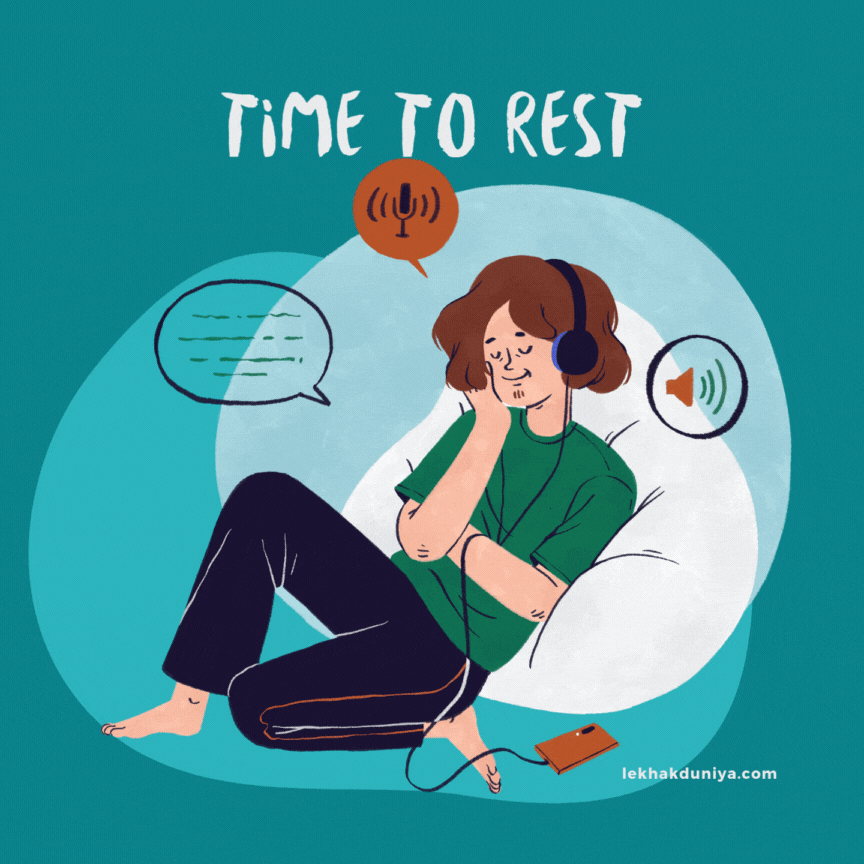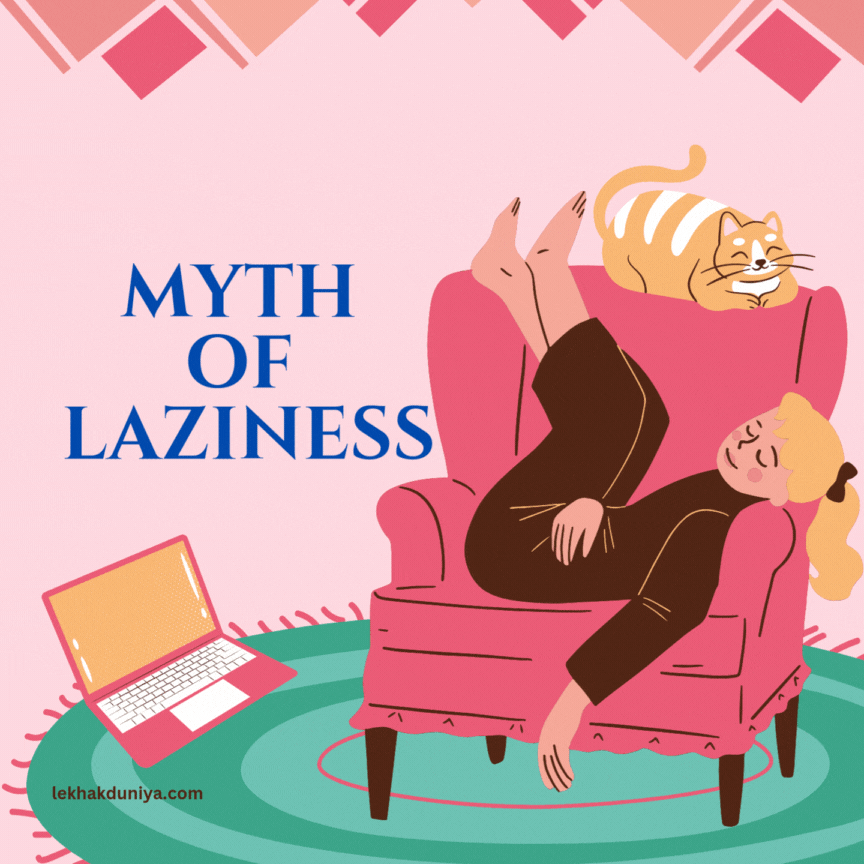In today’s fast-paced, productivity-driven world, understanding laziness is more important than ever. Laziness is often seen as the ultimate vice, an obstacle to success, and a sign of weakness. From childhood, we are taught that to be idle is to waste potential. However, this narrow view of laziness often ignores deeper, more nuanced truths. Could it be that what we call laziness is sometimes a natural, even essential part of human life?
In this blog post, we will break down the myths surrounding laziness, examining how societal expectations, capitalism, and generational differences have shaped our perception of it. More importantly, we will explore how understanding laziness can help us lead more balanced, fulfilling lives. Instead of seeing laziness as a personal failure, we’ll explore why it might be a signal that we need rest and recovery.
Table of Contents
The Social Stigma of Laziness

Laziness carries a heavy social stigma. It’s viewed as a personal flaw, a lack of discipline, or an indication of poor character. But this stigma isn’t just about individual traits; it’s shaped by cultural forces that prioritize productivity over rest.
Cultural Pressure for Productivity
In many cultures, especially in Western societies, busyness is celebrated. People are expected to be constantly working, striving for more, and always improving. Social media is filled with influencers promoting the “hustle” lifestyle—waking up early, grinding all day, and collapsing into bed at night, only to do it all again the next day. Understanding laziness in this context reveals that much of what we call laziness is often just a response to unsustainable pressure.
This obsession with productivity leads to a dangerous cycle: when people take time to rest, they are often consumed with guilt or self-doubt. Even a brief period of relaxation can be viewed as laziness, which in turn lowers self-esteem and increases anxiety.
Moral Judgments on Laziness
Laziness has long been seen as a moral failing. In many religious traditions, laziness is considered sinful, with sloth even being named one of the seven deadly sins in Christianity. This moral judgment still lingers in today’s work-driven culture. If someone is perceived as lazy they are often seen as lacking ambition, drive, or worth. But in understanding laziness, it’s crucial to see it not as a moral failing, but as a response to overwhelming demands.
The Impact on Self-Esteem
The stigma around laziness can deeply affect self-esteem. Many people internalize the belief that if they’re not working or being productive, they are not good enough. This can lead to a vicious cycle: guilt for resting, overworking to compensate, and then experiencing burnout, which ironically can result in laziness. Understanding laziness in this context helps people recognize that their bodies and minds might be sending signals that they need a break, not a moral critique.
Laziness and Capitalism: A Cultural Perspective
When we talk about understanding laziness, it’s impossible to ignore the role of capitalism. In capitalist societies, productivity is often seen as the ultimate goal, with constant busyness and output being rewarded. But what if this constant demand for productivity is what creates the illusion of laziness?

The Commodification of Time
Capitalism treats time as money. Every minute not spent working or producing is seen as wasted. This view has historical roots dating back to the Industrial Revolution when factory workers were expected to put in grueling hours under harsh conditions. Over time, this mindset became ingrained in our culture. Today, we are constantly bombarded with messages that equate time spent resting with laziness.
However, understanding laziness in a capitalist context shows that this pressure to always be productive is often what leads to burnout. Many people push themselves too hard, only to find that they eventually have no choice but to rest, which society quickly labels as laziness.
Work and Identity
In modern capitalist societies, work and identity are often intertwined. When someone is asked, “What do you do?” they often reply with their job title, subtly tying their sense of identity and self-worth to their profession.” This creates a culture where productivity is directly tied to personal value, making laziness feel like an attack on one’s character. However, understanding laziness requires recognizing that people are more than just their output. Sometimes, what looks like laziness is a natural response to overwork, a signal that rest is necessary.
Economic Drivers of Overwork
Today’s economic landscape—rising costs, job instability, and increasing competition—forces many people to work longer hours. This constant pressure to keep working, fueled by the gig economy and the glorification of “side hustles,” leads to overwork and exhaustion. In this context, understanding laziness means recognizing that people aren’t necessarily lazy; they’re just overwhelmed by the demands of modern life.
The Myth of the ‘Lazy Generation’

One of the most persistent modern stereotypes is that younger generations, particularly Millennials and Gen Z, are lazy. However, this notion often fails to account for the changing landscape of work, technology, and values. Understanding laziness in younger generations requires a deeper look at how societal changes have reshaped their relationship with work and productivity.
Common Stereotypes
Older generations often accuse Millennials and Gen Z of being less hardworking, suggesting that technology and changing work habits have made them lazy. But in understanding laziness among younger generations, it’s important to consider the economic challenges they face. With rising student debt, unaffordable housing, and precarious employment, younger people are often working harder than ever, but in different ways.
Technology and Work Habits
Technology has transformed the way we work. Remote jobs, automation, and digital tools have made it easier to work efficiently, but this efficiency can sometimes be mistaken for laziness. Understanding laziness in this context means recognizing that while tasks may be completed more quickly with technology, the demands for productivity haven’t decreased—they’ve just shifted.
Mental Health and Burnout
Younger generations are more open about mental health challenges, and this has shaped their approach to work. Instead of embracing the “grind until you drop” mentality, Millennials and Gen Z prioritize work-life balance and mental well-being. Understanding laziness among these groups reveals that what may look like laziness to others is a healthy response to avoid burnout.
Redefining Laziness as Rest and Recovery
A key part of understanding laziness is reframing it as a form of necessary rest and recovery. Rest is not the enemy of productivity—in fact, it is essential for it.

Rest as a Productive Tool
Rest is not the opposite of productivity. Research shows that regular breaks, naps, and periods of mental recovery improve focus, creativity, and long-term performance. The more we push ourselves to work without rest, the more we end up experiencing burnout, which then looks like laziness. By understanding laziness as a form of rest, we can embrace it as part of the natural rhythm of work and recovery.
Rest vs. Laziness
Many people confuse rest with laziness. But resting is a conscious choice to recharge, while laziness is often seen as avoidance. Understanding laziness means acknowledging that both rest and recovery are essential to maintaining productivity. By reframing laziness as an integral part of a balanced lifestyle, we can reduce the guilt associated with taking time off.
The Science of Rest
Numerous studies highlight the benefits of regular rest for cognitive function, problem-solving, and overall well-being. The modern work culture, however, often dismisses these findings in favor of a “work harder, longer” mentality. Understanding laziness requires a shift in thinking: recognizing that rest leads to higher productivity in the long term.
Building a Healthier Relationship with Productivity
If we want to truly embrace understanding laziness, we must build a healthier relationship with productivity, rejecting the harmful notions of hustle culture and finding a sustainable work-life balance.

Rejecting Hustle Culture
Hustle culture glorifies overwork and frames it as the only path to success. But understanding laziness requires rejecting this mindset. Instead of seeing every idle moment as wasted, we should focus on intentional, purposeful work.
Setting Boundaries
One of the most effective ways to avoid burnout is by setting clear boundaries between work and rest. By establishing a daily routine that includes breaks, shutting off work notifications, and scheduling downtime, we can maintain productivity without falling into constant overwork. Understanding laziness involves recognizing that these boundaries are crucial to long-term success.
Mindful Productivity
Mindful productivity is about focusing on doing less but better. It’s about prioritizing quality over quantity, and understanding that regular breaks can improve overall performance. By understanding laziness as a natural part of the work process, we can achieve more while feeling less stressed.
Understanding Laziness as a Path to Balance
In conclusion, understanding laziness is about much more than labeling it as a personal flaw or a lack of motivation. It’s about recognizing the societal, cultural, and economic forces that shape our perception of work and rest. By redefining laziness as a form of recovery and self-care, we can build healthier, more sustainable relationships with productivity.
Instead of viewing laziness as the enemy of success, we should see it as a signal—a reminder that our bodies and minds need rest. In understanding laziness, we open the door to more balanced, fulfilling lives where rest and productivity can coexist in harmony.




FinTech ZoomUs Very well presented. Every quote was awesome and thanks for sharing the content. Keep sharing and keep motivating others.
Your writing is like a breath of fresh air in the often stale world of online content. Your unique perspective and engaging style set you apart from the crowd. Thank you for sharing your talents with us.
Your blog is a true hidden gem on the internet. Your thoughtful analysis and in-depth commentary set you apart from the crowd. Keep up the excellent work!
“I agree with your points, very insightful!”
Noodlemagazine I’m often to blogging and i really appreciate your content. The article has actually peaks my interest. I’m going to bookmark your web site and maintain checking for brand spanking new information.
Noodlemagazine This is really captivating, You’re an excellent blogger. I’ve joined your feed and am excited to read more of your outstanding posts. Also, I’ve shared your site with my social media followers!
FlixHQ This was wonderful, Admin. Thank you for sharing your thoughts.
Utterly written written content, Really enjoyed looking through.